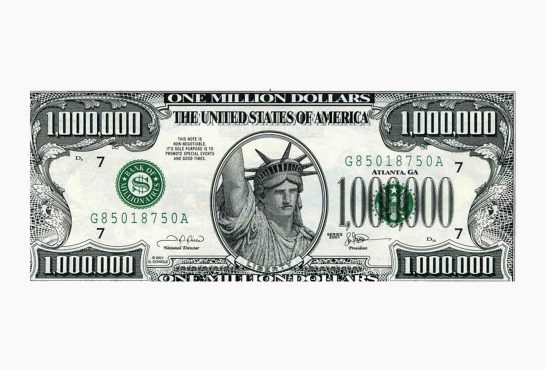What I learned losing ONE MILLION dollars?

“Experience is the worst teacher. It gives the test before giving the lesson.” Unknown
The book “What I learned losing one million dollars” by Brendan Moynihan should be required reading for every investor. The book shares the story of legendary trader, Jim Paul, then President of the Chicago Mercantile Exchange, who was unceremoniously removed after losing $1.6 million dollars in less than 60 days and in the process examines how human emotions played a leading role in Paul’s financial ruin. These same emotions impact the decisions we make everyday.
Winning Strategy?
There is a tendency in life to focus on the winning strategy. Investors study history to find out what works because there is a feeling that understanding a prior success will help. Researching investment experts to find out what works, Moynihan hit a dead end. As the author states, “If imitating the pros was supposed to make you rich and not imitating them was supposed to make you poor, then each of these guys should have lost all his money because none of them imitated the others. They all should be flat broke…” The winning strategy of world-class investors are complete contradictions. In a sense, they are all artisans each with their own very unique opinion about how to make money.
The Common Ground
Moynihan did discover something very interesting in his research. While the experts differed greatly on how to make money, they all shared the same strategy about losing money. The following quotes symbolize the thought process of some legendary investors when it comes to losing money.
“My basic advice is don’t lose money.” Jim Rodgers
“One investor’s two rules of investing Rule #1: Never lose money. Rule #2: Never forget rule #1.” Warren Buffett
“The majority of unskilled investors stubbornly hold onto their losses when the losses are small and reasonable. They could get out cheaply, but being emotionally involved and human, they keep waiting and hoping until their loss gets much bigger and costs them deeply.” William O’Neill
“Learn how to take losses quickly and cleanly. Don’t expect to be right all the time. If you have a mistake, cut your loss as quickly as possible.” Bernard Baruch
The experts focus on how they will get hurt. They ask, “What is my downside if I make this decision? Can I afford the loss if it does not work out?” Equally important, they don’t take their gains or losses personally. If you take risk, you will eventually lose money. As humans, we emotionally internalize the loss as if we made a mistake which is why it is rare to hear stories about investment losses on the golf course. The most successful investors treat losses no differently than gains. They don’t get excited when gains occur and they don’t get depressed when they lose money. To them, it is just part of life.
Impact on Financial Planning
The real impact of this human emotional hiccup is in the decisions we make in our personal lives and these have a much more profound impact on our future success or failure. Nobody intentionally makes a bad decision; all decisions felt good at the time (like buying the second home, only later regretting the payments). Circumstances change and the “good” decision turned out to be one we wished we avoided.
During the financial crisis, the people that emerged in a better place were those that did not hesitate to take the medicine. They sold second homes at a loss to keep it from consuming additional cash flow, fired employees with families to protect the company, or had to liquidate assets to buy themselves out of a bad business deal. They were better for it in the long term even though it hurt to take the loss in the short term. When things don’t turn out well, the best thing to do is rip off the band-aid, chalk it up to life and move on. Taking it personally just makes it worse. The people that succeed make hard decisions in difficult times. Cutting losses, killing bad ideas, and starting over are the key to improving the outcome. What is lingering in your life that you know should be stopped?
